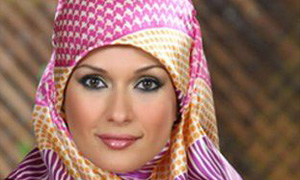Christians Protest Muslim Mistreatment in Pakistan
In Muslim-majority Pakistan, Christians and Hindus work in sub-human conditions and are arbitrarily force to vacate their shantytowns. A Christian, accused of theft, was beaten to death by Pakistani troops.
Due to lack of opportunities for education and jobs, a considerable number of Christians, Hindus and Sikhs, who are among the poorest of Islamic Republic of Pakistan, are forced to work as sanitary workers. This means descending into underground pipes bearing sewage to conduct repairs and remove obstructions: a labor spurned by most in Pakistan. Christian, Hindu, Sikh and other religious minorities are only 3 percent of the total population of the country. Their salaries are very low even while working under sub-human conditions, reported Aftab Alexander Mughal of Minorities Concern of Pakistan.
Religious minorities not only serve as sanitary workers in the municipalities and other jurisdiction but also serve as domestic workers. Minorities Concern of Pakistan, a human rights advocacy group, asserts that their Muslim employers treat them badly. Non-Muslim servants in the average Pakistani household, according to Minorities Concern, are not allowed to eat or drink from the same utensils as Muslims.
"Christian domestic help's job description was limited to cleaning of bathrooms and sewers. They could not be hired as cooks or dishwashers. They were commonly referred to as "chooras" (a derogatory term for people of the Christian faith)," Shazia Rafiq, a Muslim, as quoted by Minorities Concern from the "Weekly Pulse" of Islamabad.
Due to their poor economic conditions, sanitary workers are forced to live in "katchi abadies" (shanty towns) surrounding cities and villages. Many have been living there for decades but they do not know when they will be suddenly forced to vacate. In two recent incidents, about 350 Christian and Hindu men, women and children were made homeless by the local authorities. Although some families have gone to live with their relatives in the other parts of the cities, many are still living on the roadside without proper shelter.
On July 11, the Rawalpindi Cantonment Board (RCB) sanitary workers of RCB were forced to leave their homes along the Haider Road in Saddar, Rawalpindi, twin city of Pakistan's capital Islamabad, where they had lived for more than 40 years.
According to RCB, the action was a part of an anti-encroachment operation, while the residents were allegedly not served with any prior notice. Around 300 Christians were living in the locality and had been paying rent (Rs.1,400, $20, for each family) to RCB which was deducted from the salaries.
Minorities Concern of Pakistan learned that the residents got very limited time to remove their household goods. The workers say that they have do not know where to go.
In another incident, non-Muslims' homes in Rani Bagh, Sindh province, were pulled down by municipal administration. The families of 10 scheduled-caste Hindu sanitary workers are still homeless despite the Rs. 20,000 ($28) compensation they received. "The sanitary workers, who were employed by TMA city and Qasimabad, had been living in Rani Bagh since the days of defunct Hyderabad Municipal Corporation (HMC)," according to the daily "Dawn." The TMA issued them notices a week before carrying out demolition operation on July 12 asking them to vacate the quarters after the government put into practice a beautification plan for Rani Bagh under the Hyderabad Development Package (HPG).
As a result of their low income, almost all sanitary workers live below the poverty line. Generally, they live in un-settled areas without clean drinking water or electricity.
Not only these workers' salaries are very low but also in many cases, their salaries are not paid in time by the authorities. On June 22, 2008, about 700 Christian workers demonstrated against the Municipal Administration of Sargodha, Punjab, because the administration did not pay their salary for two months' work.
Sanitary workers face the worst working and living conditions in the country. According to a report of daily Dawn, some 3,000 (out of 7,500) or so sanitary workers of the Solid Waste Management wing of the city district government Lahore have tested positive for hepatitis B and C. In another case, four Christian sanitary workers of the Haveli Lakkha, Okara, became unconscious on April 30, 2008 while clearing choked sewerage pipelines. In many cases, sanitary workers die during cleaning the sewerage in various parts of the country.
According to a study carried out in a hospital from Dec. 5 – 19, 2003, the sanitary workers handling waste in hospitals continue to work without adequate protective devices.
Christian and Hindu sanitary workers are accused of theft and subjected to severe punishment. For example, Nadeem Menga – a Christian – was tortured and murdered by Pakistani soldiers seeking to determine whether he had stolen a motocycle. Led by Rev. Anjum Nazir, a Roman Catholic priest, Christians on June 28, 2008 protested the extra-judicial killing.
According to Shehzad Menga, the victim's younger brother, also a low-paid "sweeper" at the same school, some people on June 27 tried to steal a motorcycle parked outside the nearby house of an army captain, but the officer's wife foiled the attempt. As reported by UCAN news, "The next day 35 people, 30 of us Christians, were detained." "When we failed to name the culprits, they started beating us with batons and kicking us with their army boots."
Menga's brother recounted how he saw his brother badly beaten and, though injured, managed to pick him up and flee to the nearby Combine Military Hospital, where doctors pronounced Nadeem dead. However, they refused to hand over the body to the family until Rev. Nazir, pastor of Holy Rosary Church, spent the night at the hospital negotiating the release.
Martin Barillas is a former US diplomat, who also worked as a democracy advocate and election observer in Latin America.



